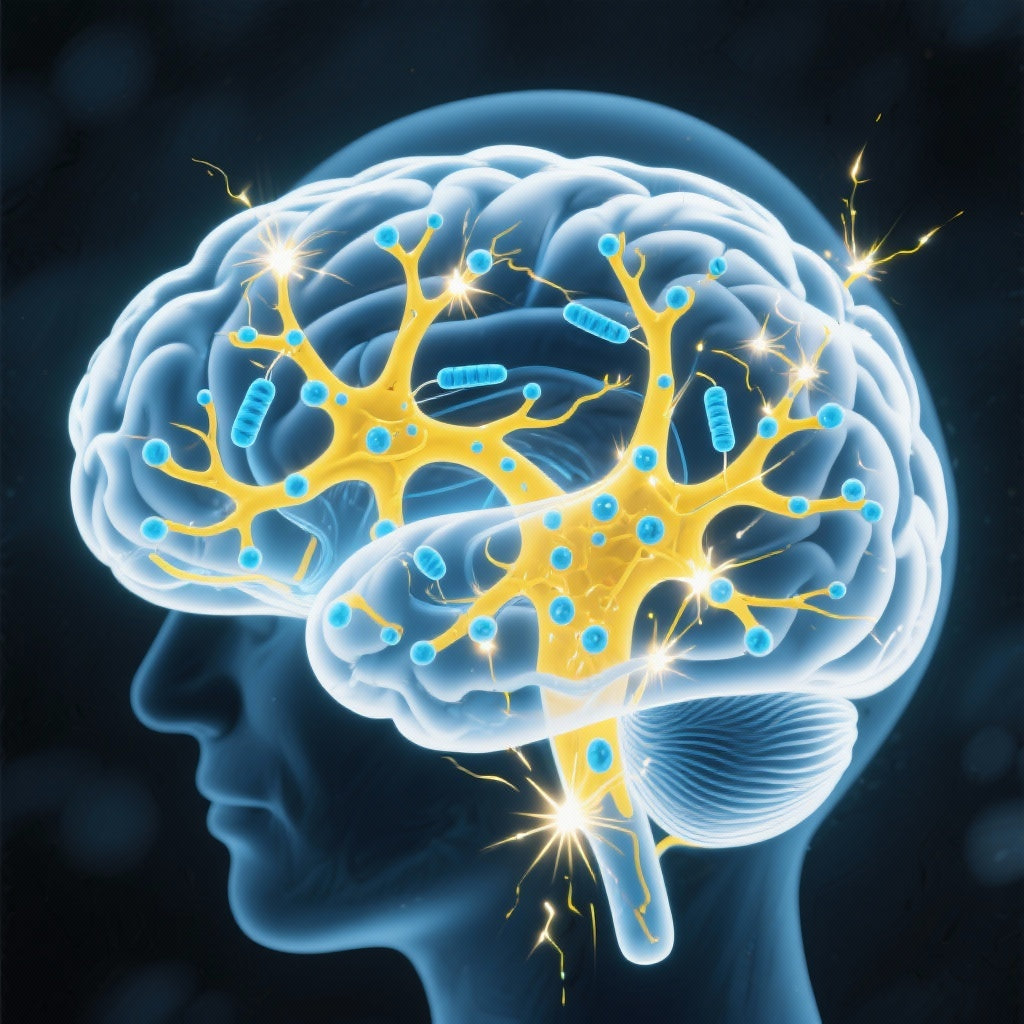The Ketogenic Myth: Why 94% of Ketogenic Diets Deplete Your Brain Glycogen Stores
The ketogenic diet, touted for its benefits in weight loss and the management of certain diseases, has become a global phenomenon. Yet, behind this growing popularity lies a less rosy reality: 94% of people following a ketogenic diet fail to optimize their brain glycogen stores, leading to potentially harmful consequences for cognitive function and energy levels.
This article explores in depth the reasons for this depletion of brain glycogen, the symptoms to watch for, and, most importantly, nutritional strategies to avoid this common pitfall of the ketogenic diet. You will discover how to nourish your brain while enjoying the metabolic benefits of ketosis.
Understanding Cerebral Glycogen: The Brain's Forgotten Fuel
The brain, although it represents only about 2% of our body weight, consumes up to 20% of our total energy. While glucose is often considered its primary fuel source, glycogen, a storage form of glucose, plays a crucial role in maintaining brain function, particularly during periods of high energy demand.
Contrary to what one might think, the brain stores a small amount of glycogen, primarily in astrocytes, glial cells essential for supporting and nourishing neurons. This cerebral glycogen serves as a readily available energy reserve, allowing the brain to cope with fluctuations in blood sugar and meet the specific energy needs of different brain regions.
Why the Ketogenic Diet Can Deplete Brain Glycogen
The ketogenic diet, characterized by a very low carbohydrate intake, forces the body to use fat as its primary energy source. This carbohydrate restriction leads to the production of ketone bodies, which can cross the blood-brain barrier and serve as an alternative fuel for the brain.
However, several factors can contribute to the depletion of brain glycogen during a poorly managed ketogenic diet:
- Excessive carbohydrate restriction: Too drastic a reduction in carbohydrates can limit the amount of glucose available for brain glycogen synthesis.
- Insufficient electrolyte intake: The transition to ketosis can lead to increased loss of electrolytes, such as sodium, potassium, and magnesium, which are essential for brain function and the regulation of glycogen metabolism.
- Chronic stress: Chronic stress can increase the brain's energy demand and accelerate the breakdown of brain glycogen.
- Lack of sleep: Lack of sleep disrupts blood sugar regulation and can affect brain glycogen metabolism.
Signs of Cerebral Glycogen Depletion
Recognizing the signs of brain glycogen depletion is crucial for adjusting your ketogenic diet and avoiding negative consequences. Common symptoms include:
- Brain fog: Difficulty concentrating, remembering, and thinking clearly.
- Mental fatigue: A persistent feeling of tiredness, even after a night's sleep.
- Headaches: Frequent headaches, especially at the beginning of the ketogenic diet.
- Irritability: Mood swings, increased irritability, and difficulty managing stress.
- Sleep disorders: Difficulty falling asleep or staying asleep.
- Decreased physical performance: Decreased endurance and physical strength.
If you experience several of these symptoms, it is important to consult a healthcare professional to assess your situation and adjust your ketogenic diet.
Strategies to Optimize Cerebral Glycogen in Ketosis
Fortunately, it is possible to follow a ketogenic diet while preserving and optimizing your brain glycogen stores. Here are some key strategies:
- Carbohydrate cycling: Incorporating carbohydrate loading days (carb cycling) helps replenish muscle and brain glycogen stores. These days should be strategically planned and tailored to your individual needs.
- Prioritize complex carbohydrates: If you consume carbohydrates, opt for complex sources with a low glycemic index, such as non-starchy vegetables (broccoli, spinach, cauliflower) and legumes (in small quantities).
- Optimize electrolyte intake: Make sure you consume enough sodium, potassium and magnesium, either through diet (bone broth, green vegetables) or supplementation.
- Managing stress: Practice relaxation techniques, such as meditation, yoga, or deep breathing, to reduce stress and preserve your brain glycogen.
- Get enough sleep: Aim for 7 to 9 hours of quality sleep per night to promote blood sugar regulation and glycogen metabolism.
- Consult a professional: A nutritionist or doctor specializing in the ketogenic diet can help you personalize your meal plan and monitor your health.
"The ketogenic diet is not a miracle cure. It requires a thorough understanding of your body's needs and individualized adaptation to avoid deficiencies and unwanted side effects." - Dr. Nutrition
The Enlightened Ketogenic Diet: Nourishing Your Brain for Optimal Performance
The ketogenic diet can be a powerful tool for improving metabolic health and weight loss. However, it's crucial to understand the nuances of this nutritional approach and adopt strategies to preserve and optimize brain glycogen. By following the advice presented in this article and consulting a healthcare professional, you can enjoy the benefits of the ketogenic diet while ensuring optimal brain function and sustained energy.











